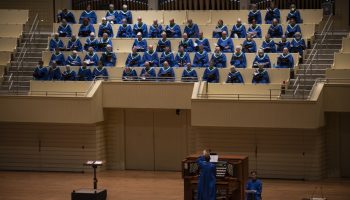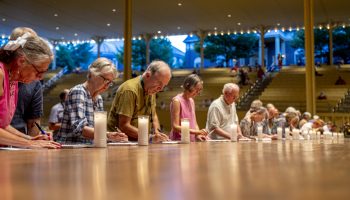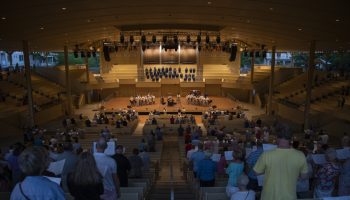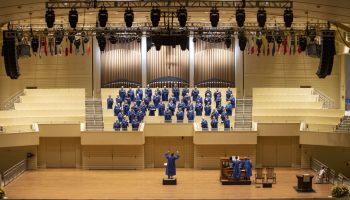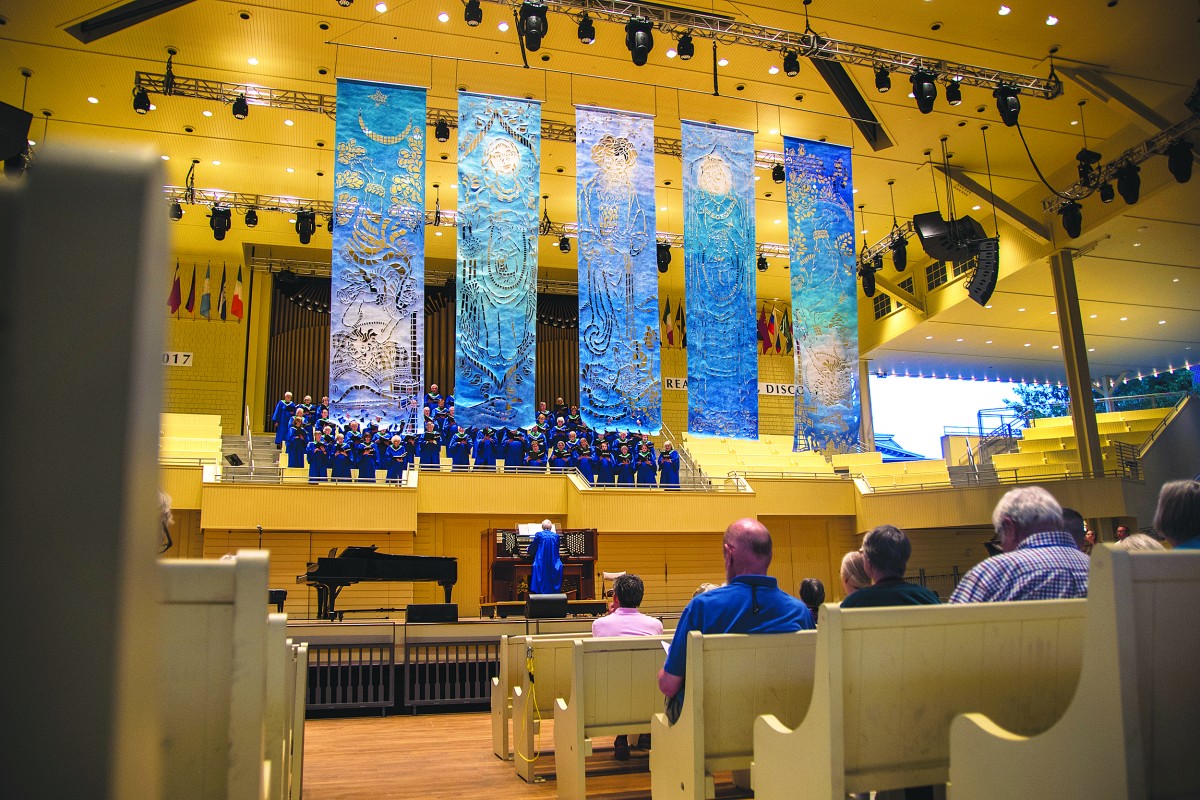
Since its founding, Chautauqua Institution has sought to invite everyone to the table.
“In the early days of Chautauqua, there was a mess hall where everybody sat at the same table and took their meals,” said Jared Jacobsen, the Institution’s organist and coordinator of worship and sacred music. “But as it grew, that table got bigger and bigger.”
Now, Chautauqua’s inclusive “table” has taken many different forms, like through the Abrahamic Program for Young Adults. APYA is an interfaith program meant to connect the three Abrahamic faiths — Christianity, Judaism and Muslim — through dialogue, reflection and, now, sacred worship.
At 8 p.m. Sunday in the Amphitheater, Jacobsen, APYA coordinators and the Chautauqua Choir will present “Growing the Abrahamic Community” for this week’s Sacred Song Service. This service is a combination of music, poetry, prayer and artwork from the three faith traditions that will help attendees visualize the interfaith mission.
“Through this Sacred Song Service, I’ve tried to develop a way to help people understand what this journey of connection might be like,” Jacobsen said. “We talk very much about the Abrahamic initiative and the family of Abraham. Our visual trigger to this is three gigantic banners that we created as artwork to help people visualize when they come to the service.”
Assisting Jacobsen in this program are APYA’s Christian coordinator Allison LoPrete and Muslim coordinator Yousaf Seyal, with additional help from Ross Levy, who will represent Judaism.
“These coordinators become the focus people, a living and breathing embodiment, of what we are trying to talk about in bringing these families together,” Jacobsen said.
For the worship component of the service, the choir will perform different chants and songs from each tradition. The Abrahamic faiths, Jacobsen said, all share a universal call to prayer and praise.
“Every one of these traditions has a calling to prayer in some way,” he said. “Sometimes it’s spoken. Sometimes it’s sung, but music is important to all three traditions in different ways.”
Musically, the Muslim tradition does not have any official hymns, Jacobsen said, but he has found a “growing body” of songs dedicated to the Islamic tradition.
In addition to music, the service will include visual components that celebrate the unity and common roots of the Abrahamic faiths. The Amp will be decorated with original banners, designed by California liturgical artist Nancy Chinn, who uses a paper lace material to craft images that tell the story of Abraham.
“Nancy is amazing at taking something, like a baseball stadium, and turning it into a worship space, or taking a hotel ballroom and (turning) it into a worship space,” Jacobsen said. “She understands how to work big, and I needed big for the Amphitheater. Her detailing is really extraordinary, … and once we had these banners in front of us, that’s what informed where we were going to go with this service.”
Jacobsen will also place three large candles in water on the Amphitheater stage to represent the universal need for light and nourishment in Abrahamic tradition.
“These big candles will be pushing away the darkness while sitting in water because we’re all desert people searching for an oasis,” he said.
Trying to find a title to encompass the breadth and impact of this interfaith message was not simple, Jacobsen said. Ultimately, he decided to send a message of growth through the title. Although Chautauqua is certainly making strides to be inclusive and understanding, Jacobsen said he believes the interfaith work is only just beginning.
“I’m glad to say at Chautauqua, this whole interfaith program is still viable and exciting,” he said. “A lot of people look forward to this service every year because we’ve been doing it for a long time, and they are the people who are already doing this in their communities. That’s one of the magic things about Chautauqua: we can create things and we watch them ripple out.”
In addition to seeing Abrahamic interfaith work “ripple out,” Jacobsen said other religions and spiritual practices are also beginning to express a desire for inclusion.
“This work is now bulging at the seams,” he said. “People are now saying, ‘What about all these other faiths?’ I think in the next several years, you will see Chautauqua widening the horizons a bit more.”

